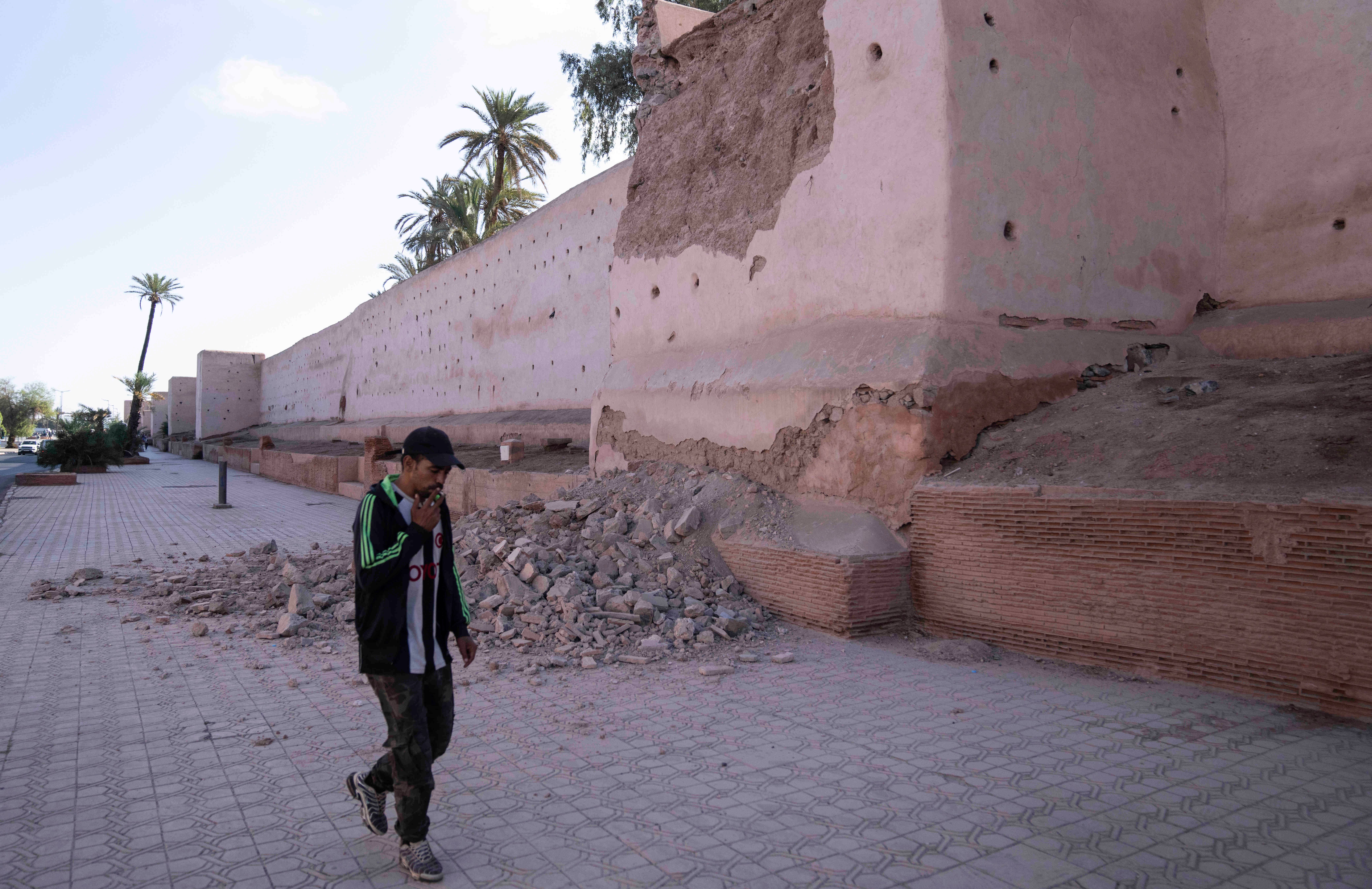More than 1,000 people have died in a powerful earthquake that struck Morocco’s High Atlas mountains late on Friday.
A further 1,204 people are reported to be injured - 721 of them critically - in the quake that destroyed buildings and sent residents rushing from their homes as it struck just after 11pm (10pm GMT).
At least 1,037 people died, mostly in Marrakech and five provinces near the quake’s epicentre, Morocco’s Interior Ministry reported on Saturday morning.
The death toll is expected to rise as rescuers pick through the rubble on Saturday and work to reach remote areas.
Bill McGuire, professor emeritus of geophysical and climate hazards at University College London, said: “I would expect the final death toll to climb into the thousands once more is known.
“As with any big quake, aftershocks are likely, which will lead to further casualties and hinder search and rescue.”
Th earthquake is the hardest to hit Morocco in 120 years.
Prime Minister Rishi Sunak said: “ My thoughts are with everyone affected by the terrible earthquake in Morocco last night. The UK stands ready to support our Moroccan friends.”
Foreign Secretary James Cleverly said the UK is supporting British nationals in the region.
Devastating news of a substantial earthquake just outside Marrakesh, Morocco.
— James Cleverly🇬🇧 (@JamesCleverly) September 9, 2023
The UK is continuing to support British nationals in the region.
We stand ready to help our Moroccan friends in whatever way we can.
Residents of Marrakech, the nearest big city to the epicentre, said some buildings had collapsed in the old city, a UNESCO World Heritage site.
In Marrakech, the famous Koutoubia Mosque, built in the 12th century, suffered damage, but the extent was not immediately clear.
Its 69-metre (226-foot) minaret is known as the “roof of Marrakech.” Moroccans also posted videos showing damage to parts of the famous red walls that surround the old city, a UNESCO World Heritage site.

Morocco’s geophysical centre said the quake struck in the Ighil area of the High Atlas with a magnitude of 7.2.
The US Geological Survey put the quake’s magnitude at 6.8 and said it was at a relatively shallow depth of 18.5km (11.5 miles).
Local television showed pictures of a fallen mosque minaret with rubble lying on smashed cars.
The Interior Ministry urged calm, saying in its televised statement on the death toll that the quake had hit the provinces of Al Haouz, Ouarzazate, Marrakech, Azilal, Chichaoua and Taroudant.
The head of a town near the earthquake’s epicentre told Moroccan news site 2M that several homes in nearby towns had partly or totally collapsed, and electricity and roads were cut off in some places.
Abderrahim Ait Daoud, head of the town of Talat N’Yaaqoub, said authorities are working to clear roads in Al Haouz Province to allow passage for ambulances, but said large distances between mountain villages mean it will take time to learn the extent of the damage.
The Moroccan military and emergency services mobilised aid efforts to the areas hit by damages, local media reported that roads leading to the mountain region around the epicentre were jammed with vehicles and blocked with collapsed rocks, slowing rescue efforts.
Trucks loaded with blankets, camp cots and lighting equipment were headed to the region, the official news agency MAP reported.

Montasir Itri, a resident of the mountain village of Asni near the epicentre, said most houses there were damaged.
“Our neighbours are under the rubble and people are working hard to rescue them using available means in the village,” he said.
Further west, near Taroudant, teacher Hamid Afkar said he had fled his home and felt aftershocks.
“The earth shook for about 20 seconds. Doors opened and shut by themselves as I rushed downstairs from the second floor,” he said.
The earthquake is Morocco’s deadliest since a 2004 tremor near Al Hoceima in the northern Rif mountains killed over 600 people.
The United Nations stood ready to help the Moroccan government in “its efforts to assist the impacted population”, UN spokesperson Stephane Dujarric said in a statement.

In Marrakech, some houses in the tightly packed old city had collapsed and people were working hard by hand to remove debris while they waited for heavy equipment, said resident Id Waaziz Hassan.
Another Marrakech resident, Brahim Himmi, said he saw ambulances coming out of the old town and many building facades damaged. He said people were frightened and were staying outside in case of another quake.
“The chandelier fell from the ceiling and I ran out. I’m still in the road with my children and we’re scared,” said Houda Hafsi, 43, in Marrakech.
People in the capital city of Rabat, about 350 km north of Ighil, and in the coastal town of Imsouane, about 180 km to its west, also fled their homes, fearing a stronger quake, according to Reuters witnesses.
In Casablanca, some 250 km north of Ighil, people who spent the night in the streets were too scared to return to their homes.
“The house rocked aggressively, everyone was scared,” said resident Mohamed Taqafi.
“I thought it was only my house that was moving because it’s fragile and old. I heard people screaming, everyone went out of their houses.”







